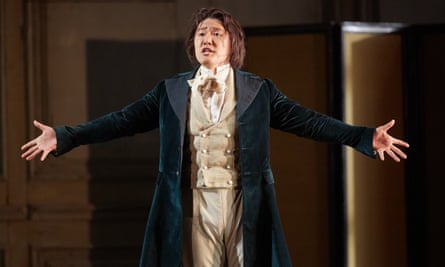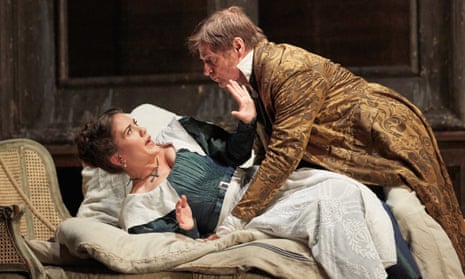A good performance of Le Nozze di Figaro always has more going for it than most other operatic experiences. The latest Covent Garden revival of David McVicar’s 2006 production is like that. It’s Figaro, so it’s wonderful. But that doesn’t mean it is without problems.
McVicar’s staging, updated to the 1820s, is one example. The indoor scenes are taut and full of social insights. The servants are rarely out of sight or mind. And this is very much a reading for the #MeToo era. But there is a dramatic slackness in the always difficult nocturnal final act, which means the opera loses its way until Mozart comes to the rescue in the transcendent final scene.
John Eliot Gardiner’s conducting poses another issue. Few know this score better or talk about it more interestingly than he. There is terrific zip and attention to detail, and orchestral insights abound. But Gardiner’s work felt a bit overbearing and self-absorbed, and there was not much kindness to the singers, who are sometimes overwhelmed.

Among the men, Christian Gerhaher’s Figaro has a master’s attention to text and vocal nuance, but he seems to be performing in a different opera from some of the more traditional interpretations around him. Simon Keenlyside’s Count acts everyone else off the stage, and can still sing most people off it, too. To hear two such baritones in this opera is luxury indeed. But this will be remembered as the gender-fluid revival with a male Cherubino, the Korean-American countertenor Kangmin Justin Kim, who pulls it off in more senses than one.
Joélle Harvey has the ideal warmth of voice for Susanna. But the full dramatic range of the woman who turns the tables on the men, and on whose music Mozart lavished such special attention, is not there yet. Her Deh Vieni was a very beautiful piece of singing, but it did not shake the soul as this aria can. Julia Kleiter’s Countess was likewise vocally distinguished but dramatically somewhat two-dimensional. It was left to the now veteran Diana Montague as Marcellina to bring the female cause to theatrical life, and it is a pity that, as usual, she is denied her final-act aria to underline the point.
